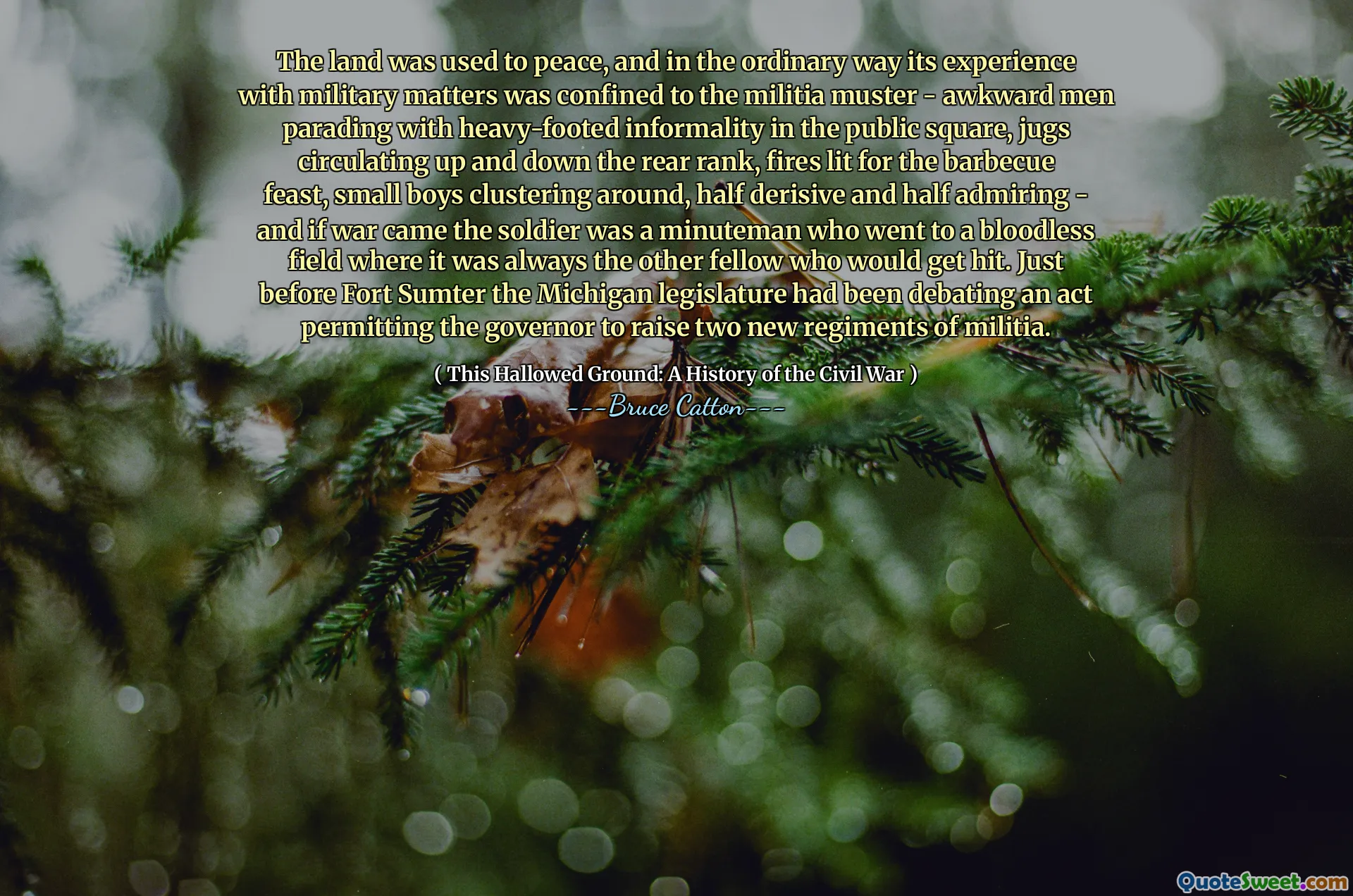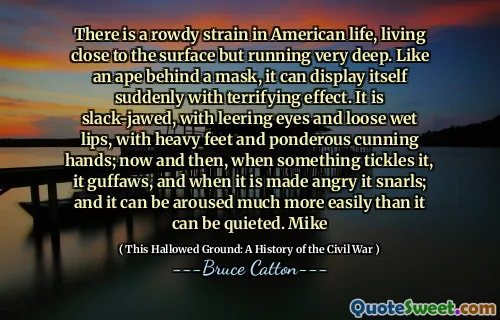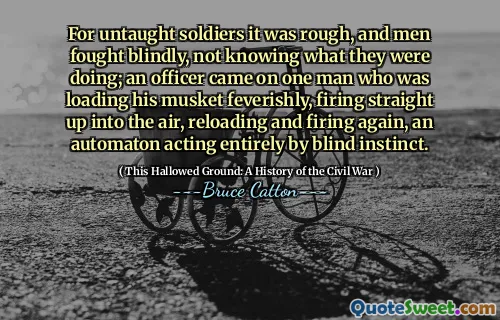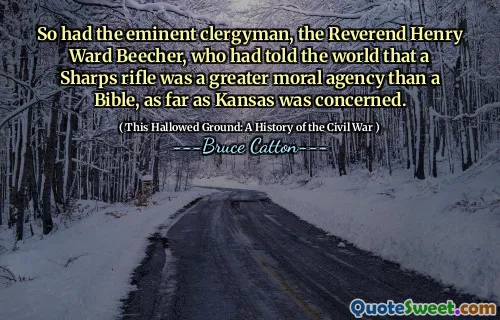
The land was used to peace, and in the ordinary way its experience with military matters was confined to the militia muster - awkward men parading with heavy-footed informality in the public square, jugs circulating up and down the rear rank, fires lit for the barbecue feast, small boys clustering around, half derisive and half admiring - and if war came the soldier was a minuteman who went to a bloodless field where it was always the other fellow who would get hit. Just before Fort Sumter the Michigan legislature had been debating an act permitting the governor to raise two new regiments of militia.
The land, accustomed to peace, had minimal military experience, primarily limited to casual militia gatherings. These events featured clumsy drills, social interactions, and community festivities, where locals would feast and children would watch with mixed feelings of derision and admiration for the soldiers. When conflict arose, the soldiers were largely idealized as minutemen, engaging in battles where the true danger seemed distant and abstract, often felt only by the enemy.
In the lead up to the Civil War and specifically Fort Sumter, the Michigan legislature was considering legislation to allow the governor to form two additional militia regiments. This reflects the growing urgency and seriousness of military preparation, contrasting sharply with the previously informal approach to local defense and the lighthearted nature of militia musters.










